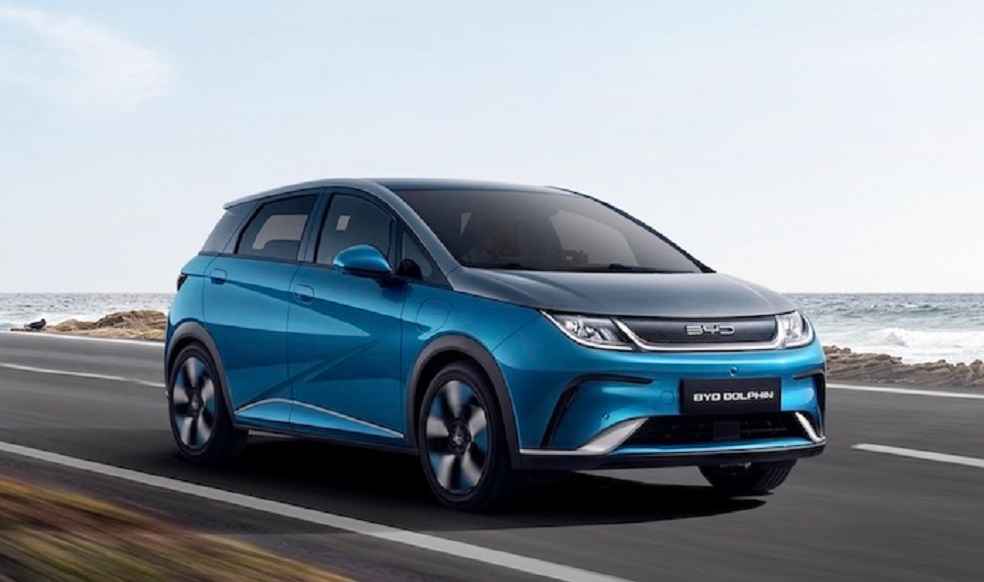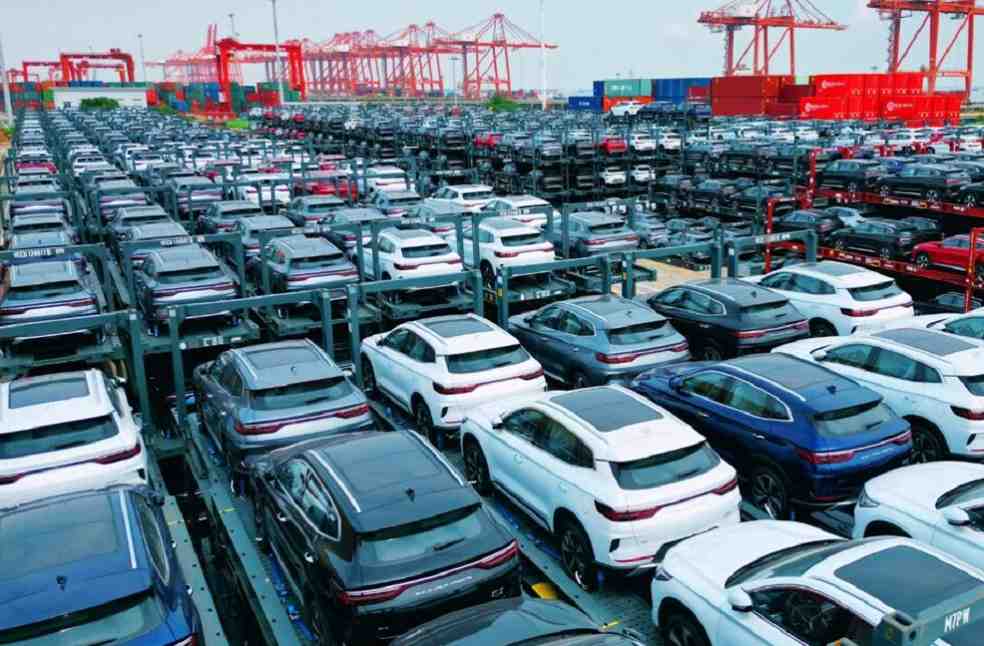China now eclipses Japan as the preeminent global auto exporter. Data from the China Passenger Car Association (CPCA) reveal a remarkable surge in vehicle exports—cars, buses, trucks—by 56% last year, reaching 5.26 million units valued at approximately $102 billion. This leap propels China beyond Japan, which reported exports of around 4.3 million vehicles for 2023.
This achievement signifies China’s expanding influence in the automotive realm, previously overtaking Germany in 2022 and South Korea in 2021 regarding annual vehicle shipments. The country’s ascendance as an automotive powerhouse, particularly through the success of its electric vehicles (EVs), marks a pivotal moment. Notably, BYD—endorsed by Warren Buffett and headquartered in Shenzhen—dethroned Tesla as the largest EV manufacturer globally in the last quarter, with exports multiplying to 242,000 in 2023.

The surge in China’s auto exports unfolds against geopolitical shifts, notably the Ukraine conflict, prompting European and Japanese manufacturers to exit the Russian market. Consequently, China’s vehicle shipments to Russia escalated by 545%, totaling 840,000 units during the first 11 months of 2023.
Despite these triumphs, Chinese automakers confront numerous challenges domestically and internationally. William Riggs, a seasoned automotive expert and professor at the University of San Francisco, underscores the strategic positioning of Chinese car manufacturers for growth.
Navigating international regulations, adapting to geopolitical and trade dynamics, and contending with seasoned automakers from the US, Europe, and Japan present formidable challenges. These established entities bring extensive experience in vehicle production and supply chain management to the table, critical factors for Chinese companies aiming for global expansion.

The crux of surmounting these obstacles lies in technological innovation and attracting top-tier talent for research and development endeavors. Establishing brand trust and effectively engaging consumers, especially in competitive markets like the US, remains crucial for ongoing growth and success. Riggs articulates the essence of business scaling as customer acquisition—a demanding yet vital task for newcomers in the global automotive landscape.
As China’s auto industry maneuvers through these challenges, its trajectory not only redefines its standing but also potentially reshapes the global automotive landscape. The journey ahead, brimming with hurdles, signifies a dynamic shift in industry power dynamics, heralding an era of innovation, competition, and strategic navigation.
EV WORLD | Cox Automotive Sparks Future with Georgia’s EV Battery Hub





